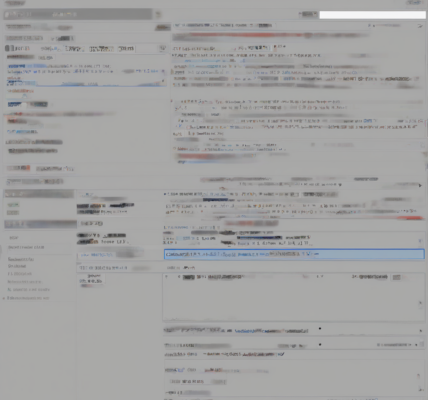Decoding Illinois Car Insurance: A Comprehensive Guide
Navigating the world of car insurance in Illinois can feel overwhelming. This comprehensive guide aims to simplify the process, providing you with the essential information you need to make informed decisions about your coverage.
Understanding Illinois Minimum Coverage Requirements
Illinois is a state with minimum car insurance requirements, meaning you are legally obligated to carry a specific level of coverage. Failing to do so can result in significant penalties, including fines and license suspension. Understanding these minimums is the first step towards securing adequate protection.
- Bodily Injury Liability: This covers injuries you cause to others in an accident. Illinois’ minimum requirement is $25,000 per person and $50,000 per accident. This means the maximum your insurance will pay for injuries to one person is $25,000, and the maximum for all injuries in a single accident is $50,000.
- Property Damage Liability: This covers damage you cause to another person’s property in an accident. The minimum requirement in Illinois is $20,000.
It’s crucial to understand that these minimums are often insufficient to cover the costs associated with serious accidents. Consider the potential for significant medical bills, lost wages, and property damage. Opting for higher liability limits provides crucial financial protection.
Beyond the Minimum: Exploring Additional Coverage Options
While meeting the minimum requirements is legally mandated, securing additional coverage is strongly advised. These optional coverages offer greater peace of mind and financial security in the event of an accident.
- Uninsured/Underinsured Motorist Coverage: This protects you if you are involved in an accident caused by an uninsured or underinsured driver. It’s particularly important in Illinois, where a significant percentage of drivers may not carry adequate insurance.
- Collision Coverage: This covers damage to your vehicle resulting from a collision, regardless of fault. This is beneficial even if you’re not at fault, as it protects you from expenses associated with repairing or replacing your car.
- Comprehensive Coverage: This covers damage to your vehicle caused by events other than collisions, such as theft, vandalism, fire, or hail. This provides broader protection against unexpected events.
- Medical Payments Coverage (Med-Pay): This covers medical expenses for you and your passengers, regardless of fault. It can help alleviate the financial burden of medical bills following an accident.
- Personal Injury Protection (PIP): This coverage can pay for your medical bills and lost wages, regardless of fault. It also often covers medical expenses for your passengers. Illinois is a “choice no-fault” state, meaning you can choose whether or not to have PIP coverage.
Factors Affecting Car Insurance Rates in Illinois
Several factors influence the cost of car insurance in Illinois. Understanding these factors can help you shop for the best rates.
- Driving History: Your driving record significantly impacts your insurance premiums. Accidents, traffic violations, and DUI convictions can lead to higher rates.
- Age and Gender: Younger drivers generally pay more due to statistically higher accident rates. Gender can also be a factor in some insurance calculations.
- Vehicle Type: The make, model, and year of your vehicle influence premiums. Sports cars and luxury vehicles typically cost more to insure than economy cars.
- Location: Your address impacts rates due to variations in accident rates and crime statistics across different areas of Illinois.
- Credit Score: In many states, including Illinois, your credit score can be a factor in determining your insurance rates. A higher credit score often translates to lower premiums.
- Coverage Levels: The amount of coverage you choose directly affects your premiums. Higher coverage limits generally mean higher premiums.
- Deductibles: Your deductible is the amount you pay out-of-pocket before your insurance coverage kicks in. Higher deductibles typically result in lower premiums.
Shopping for Car Insurance in Illinois: Tips and Strategies
Finding the right car insurance in Illinois requires careful comparison shopping. Here are some tips to help you secure the best rates and coverage:
- Compare Quotes: Obtain quotes from multiple insurance companies. Don’t just rely on a single quote, as rates can vary significantly.
- Bundle Your Policies: Consider bundling your car insurance with other types of insurance, such as homeowners or renters insurance. Many companies offer discounts for bundling.
- Maintain a Good Driving Record: Safe driving habits are crucial for keeping your premiums low. Avoid accidents and traffic violations.
- Consider Discounts: Inquire about available discounts, such as those for good students, safe drivers, and multiple-car households.
- Review Your Coverage Regularly: Your insurance needs may change over time. Review your coverage annually to ensure it still meets your requirements.
- Understand Your Policy: Carefully read your insurance policy to fully understand your coverage and responsibilities.
- Use Online Comparison Tools: Several online tools can help you compare quotes from different insurance companies quickly and easily.
- Check for Complaints: Before choosing an insurer, research their customer service record and check for any significant complaints filed against them.
Understanding Your Rights and Responsibilities as an Illinois Driver
As an Illinois driver, you have certain rights and responsibilities regarding car insurance. Understanding these is vital for protecting yourself legally and financially.
- Proof of Insurance: You are required to carry proof of insurance in your vehicle at all times. Failure to do so can result in fines and penalties.
- Reporting Accidents: You are required to report any accidents to your insurance company promptly. Failure to do so could jeopardize your claim.
- Filing a Claim: If you are involved in an accident, understand the process for filing a claim with your insurance company.
- Dealing with Insurance Adjusters: Know your rights when dealing with insurance adjusters. Don’t feel pressured into settling a claim before you have had a chance to fully assess the situation.
- Understanding Your Policy Exclusions: Be aware of any exclusions or limitations in your policy that might restrict coverage in certain situations.
Dealing with Accidents in Illinois
In the event of an accident, taking the right steps can significantly impact your insurance claim process.
- Ensure Safety: Prioritize the safety of yourself and others involved in the accident.
- Call Emergency Services: If anyone is injured, call 911 immediately.
- Exchange Information: Exchange contact and insurance information with all other drivers involved.
- Document the Scene: Take photos or videos of the accident scene, including vehicle damage and any injuries.
- Obtain Witness Information: If there are any witnesses, get their contact information.
- Report the Accident: Report the accident to your insurance company as soon as possible.
Specialized Insurance Needs in Illinois
Certain situations may require specialized car insurance considerations in Illinois.
- High-Value Vehicles: If you own a high-value vehicle, you may need specialized coverage to ensure adequate protection.
- Classic Cars: Classic cars often require specific insurance policies that account for their unique value and usage.
- Commercial Vehicles: If you use your vehicle for business purposes, you will need commercial auto insurance, which differs from personal auto insurance.
- SR-22 Insurance: If your driving privileges have been suspended or revoked, you may be required to obtain SR-22 insurance, which provides proof of financial responsibility to the state.
Finding the Right Insurance Provider
The best insurance provider for you will depend on your individual needs and preferences. Consider the following when choosing an insurer:
- Financial Stability: Choose a company with a strong financial rating to ensure they can pay out claims.
- Customer Service: Look for a company with a reputation for excellent customer service and responsiveness.
- Policy Options: Select a company that offers a range of coverage options to meet your specific needs.
- Pricing: Compare prices from multiple companies to find the best value for your money.




